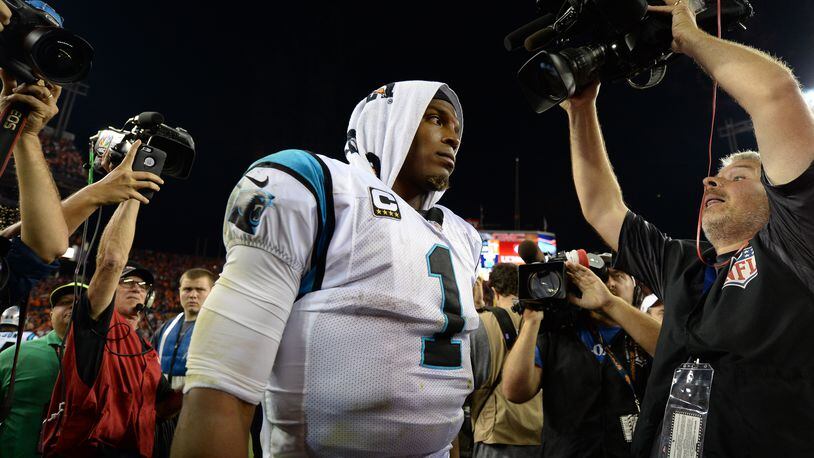Around the time Carolina Panthers quarterback Cam Newton was starting a firestorm by belittling a female reporter, I was listening to a recording of Buffalo Bills coach Sean McDermott put on a clinic in the art of using lots of words to say mostly nothing.
There were some insights buried in his mostly mundane minutes on a conference call with Bengals reporters, and I highlighted those in a weekly recap you can find here.
I thought one nugget that sounded like coach-speak was useful by itself, but it took a little squinting.
When asked about how worried he is about the Bengals running game even though the Bengals running game hasn’t been very good so far, McDermott of course said essentially they always want to stop the run, concluding with:
"In a lot of ways, stopping the run is about gap integrity and doing your job, knowing where your fit is and so that's really the biggest focus on a week to week basis. They've got a good corps of running backs and are very talented so we've got to be aware of what they do with the run game."
These days most NFL coaches and players for that matter know how to avoid saying anything inflammatory, and a side effect of that is they often say stuff that isn’t true (like identifying bad players as good players, for example).
However, in this case Joe Mixon and Giovani Bernard really do present a challenge greater than the numbers they have produced so far. While a missed tackle or blown assignment against some teams might mean second-and-2 instead of second-and-7, Mixon or Bernard could be dancing in the end zone.
As far as explosiveness, they are above-average, so this might not have been something McDermott was saying just to pass the time until people got tired of asking him questions.
Of course, there are other issues with the Bengals running game, but that's another story.
#Bengals still waiting for run game to find traction: https://t.co/FGjIIwicwZ pic.twitter.com/5SJwIGtffo
— Jay Morrison (@JayMorrisonCMG) October 4, 2017
Back to the relationship between reporters and our subjects.
That I felt like I needed multiple paragraphs to explain why something a coach said was interesting should tell you a lot about where things stand.
Newton’s response to a female reporter asking him about pass routes made me shake my head for a couple of reasons.
First, most questions about the Panthers passing game seem relevant given that a big emphasis of the offseason coverage of the team was on how it might evolve. Any part of that should be interesting to an observer of the game.
Second, I’m surprised the quarterback seemed to be caught off guard that particular reporter — Jourdan Rodrigue of the Charlotte Observer — would ask such a question because she often writes stories about strategy and technical football stuff.
Third, she’s a professional doing her job and obviously deserves respect even if the first two things weren’t true.
Fourth, women have been part of the beats I have covered since I broke into the business, and that predates Newton becoming a household name.
Lastly, players take issue with these sorts of questions all the time, which makes including what seemed to be intended as a personal insult an even worse look.
He went out of his way to put down someone for a question he probably would have hated coming from anybody, and in the process indicated he thinks women are even less qualified to ask about technical football stuff than men.
That’s pretty bad One-Two punch from both a personal and public relations standpoint.
One of the reasons a lot of general beat fodder doesn’t stand out is talking about these subjects, particularly in a group setting, can be tricky because football is complicated, timing is short and a lot of players and coaches don’t care if we get info we want anyway even if it’s something fans are interested in learning more about.
That’s frustrating as someone who is deeply interested in Xs and Os, but it’s reality.
Newton has had some bouts with immaturity, but that’s not unusual for someone who has been in the spotlight since he was 20 or so. He’s also come back from previous missteps to be a popular player in the league.
I'm sure he will again, but this lapse in judgement at this point in his career has to be at least a little alarming for his team — especially upon seeing he passed on a chance to apologize and wasn't even aware the identity of someone who covers the team on a daily basis.
Respect is a two-way street and a building block for a strong relationship.
Maybe with the rise of social media and the ease of getting out a message without a middle man (or woman), sports reporters and our subjects will never have that again.
I hope that’s not the case.
About the Author
